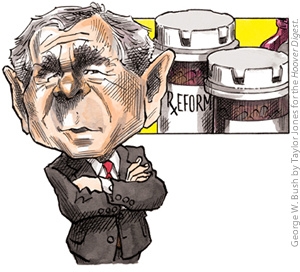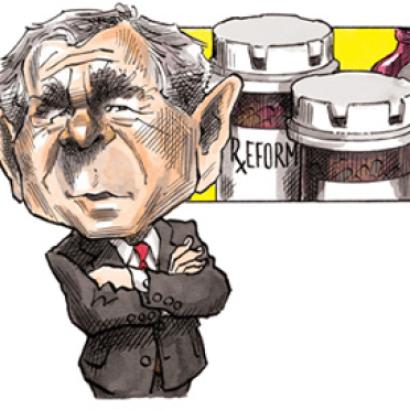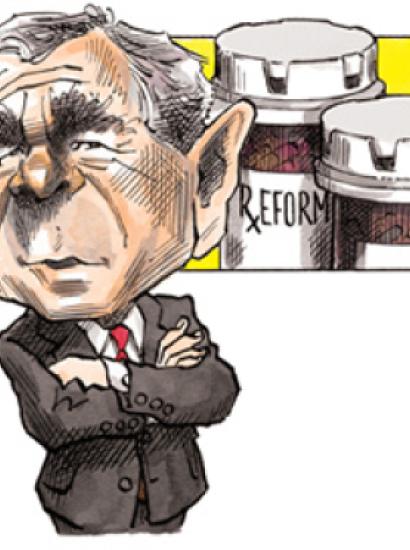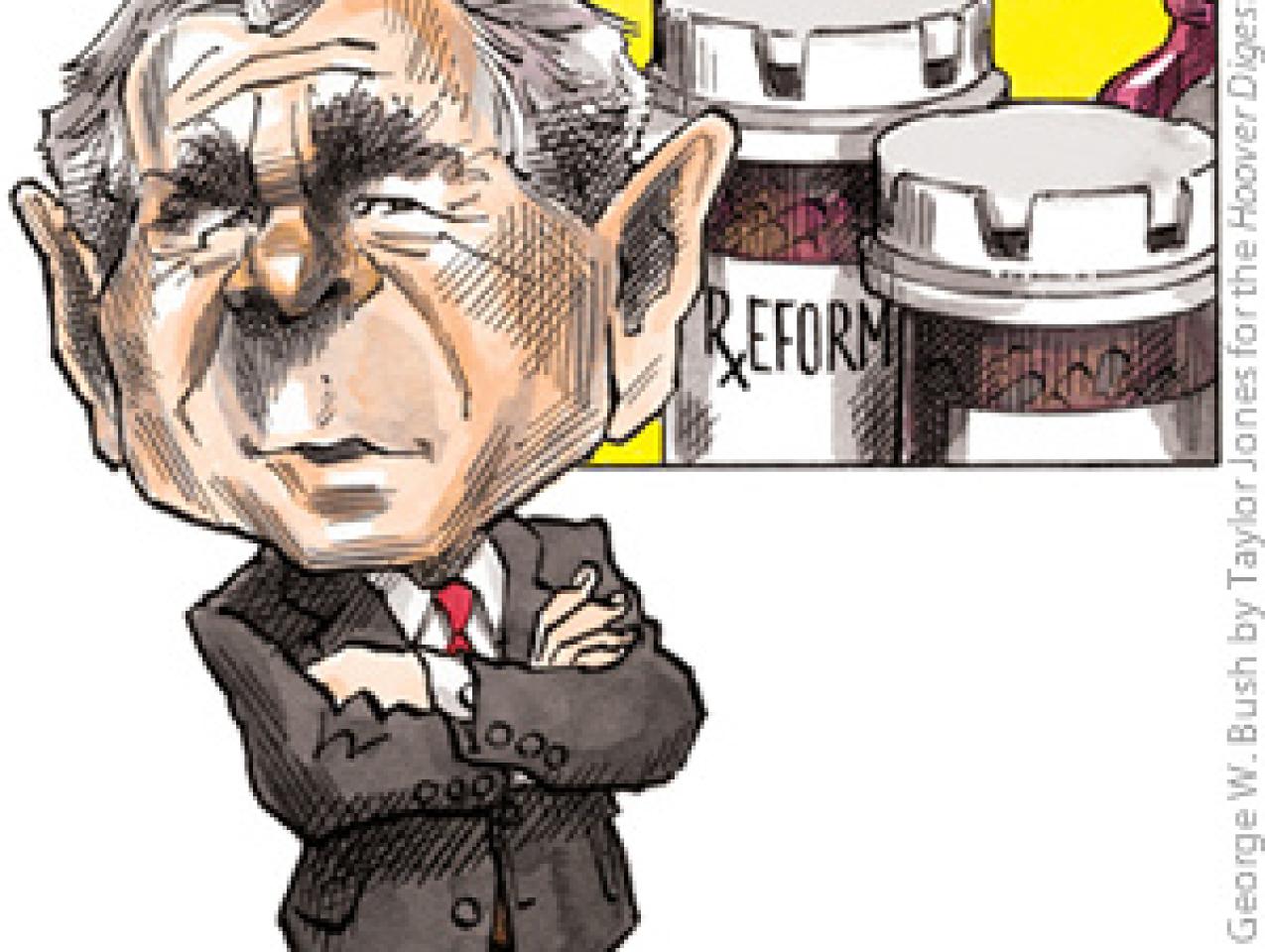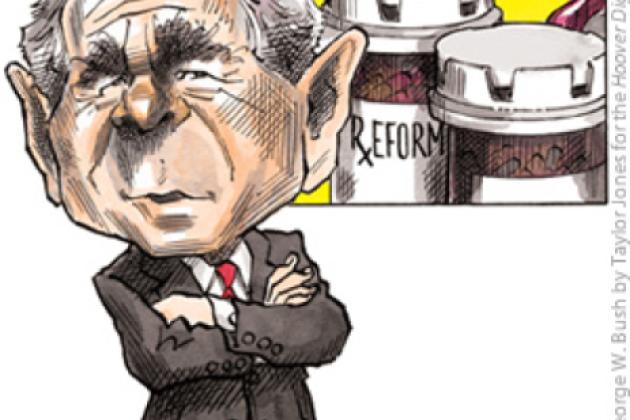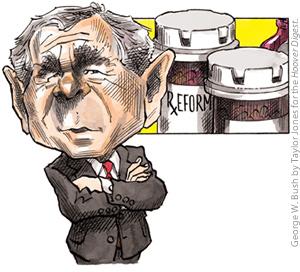- Budget & Spending
- The Presidency
- Health Care
- Economics
- Politics, Institutions, and Public Opinion
The U.S. health care system needs reform. After a century of innovation, the quality of our health care is the envy of the world. Yet the system is in deep trouble. Costs are rising rapidly, the number of uninsured is at an all-time high, and public satisfaction is sinking.
The first step to solving these problems must include reforming a handful of poorly designed public policies. I suggest three areas for immediate attention: the tax treatment of health expenses, the regulation of insurance markets, and the medical malpractice liability system.
Tax reform. A simple change to the tax law would cut unproductive health spending, reduce the number of uninsured, and promote greater tax fairness and progressivity. For anyone with at least catastrophic insurance coverage, all health care expenses—employee contributions to employer-provided insurance, individually purchased insurance, and out-of-pocket spending—would be tax deductible. The deduction would be available both to those who claim the standard deduction and to those who itemize.
The most important effect of tax deductibility would be to reduce unproductive health spending. Under current law, medical care purchased through an employer’s insurance plan is tax free, whereas direct medical care purchased by patients must be made with after-tax income. As many others and I have observed, this tax preference has given patients the incentive to purchase care through low-deductible, low-copayment insurance instead of out of pocket, which in turn leads to cost-unconsciousness and wasteful medical practices.
Tax deductibility has two other important benefits. First, by making health care more affordable for a large number of uninsured persons, it will reduce the number of people who are uninsured. Second, it will make the tax system fairer and more progressive. Current tax law penalizes workers whose employer does not offer them health insurance, making them buy insurance with after-tax dollars. Moreover, percentage tax reductions from deductibility for low-income households are much larger than the same reductions for high-income households, despite the fact that a one-dollar deduction benefits a high-income taxpayer more than a low-income one because low-income taxpayers are more likely to have high levels of out-of-pocket spending.
Regulatory reform. Two types of state regulation—“mandated benefits” laws and “any-willing-provider” laws—drive up the cost of health care and increase the number of uninsured. The Congressional Budget Office estimates that mandated benefits laws—which require that health plans cover particular types of persons, services, or providers (e.g., alcoholism treatment or chiropractic services)—increase health insurance costs by 5 percent, and possibly as much as 15 percent, beyond what they would be if consumers were free to choose the benefits package they most preferred. New research finds that “any-willing-provider” laws (which require that health plans reimburse for care provided by any doctor, hospital, or pharmacist who is willing to accept the plan’s terms and conditions) increase health care costs by 1 to 2 percent, by weakening the cost-containment effects of managed-care plans.
Therefore insurance companies should be allowed to offer their plans on a nationwide basis, free from costly state benefit mandates and excessive regulations. Regulations should be uniform and cover only essential areas. The benefits of nationwide insurance are considerable. Health insurance will become more portable because people could switch jobs across state lines without their insurance being canceled. All people, but especially the uninsured, would have access to lower-cost insurance options.
Malpractice reform. Two reforms to the malpractice system would reduce the cost and improve the quality of care. First, reasonable caps on non-economic damages will reduce the prevalence and cost of “defensive medicine”—treatment based on fear of litigation that drives up costs but offers minimal health benefits. Second, data on adverse medical events collected by insurers, hospitals, and physicians to improve the quality of care should not be admissible as evidence in medical malpractice trials. In general, such data are discoverable by plaintiffs, unless they fall under a state’s specific statutory exception. Providing this additional protection to potential defendants will enhance their incentives to reduce the number of medical errors.
